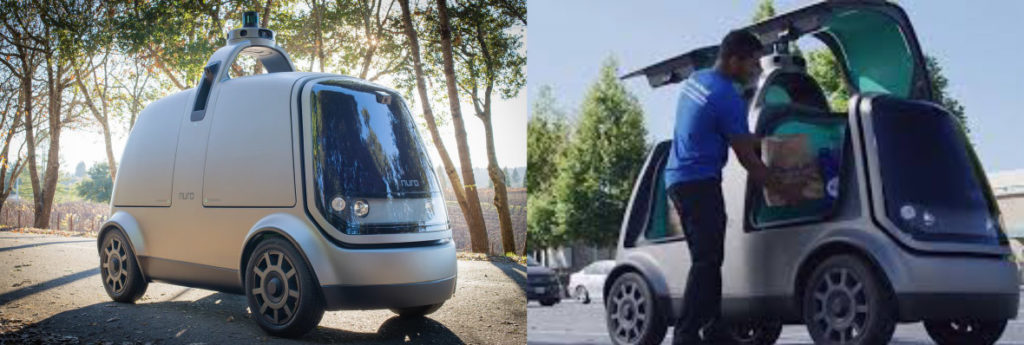For the first time, the US government’s highway safety agency has approved a company’s request to deploy a self-driving vehicle that doesn’t meet federal safety standards for human-driven cars and trucks. The National Highway Traffic Safety Administration granted temporary approval for Silicon Valley robotics company Nuro to run a low-speed autonomous delivery vehicle, without side and rear-view mirrors and other safety provisions required of vehicles driven by humans. Also not on the safety feature list; windshield wipers, steering wheels or brake pedals.
The vehicles previously were subject to federal standards for low-speed vehicles that travel under 25 miles per hour. Those didn’t need steering wheels or brake pedals and didn’t have to have human backup drivers.
Current Nuro vehicles can be monitored and controlled remotely by a human operator, if needed.
In December Nuro announced plans to use its low-speed vehicles, called “R2,” in partnership with Walmart to deliver groceries to customers in Houston. The service was to start early this year and use the vehicles as well as automated Toyota Prius hybrid cars. Nuro also was testing deliveries with Kroger in Arizona and Houston.
Under the temporary approval, Nuro will have to make real-time safety reports to the agency. Nuro also will have to hold regular meetings with the agency and reach out to the community in areas where the vehicles will travel.
“NHTSA is committed to working with industry and key stakeholders to create space for innovation while prioritizing safety,” the agency said in a prepared statement Thursday.
The agency will use enforcement powers if it finds any evidence of an unreasonable risk to safety, the statement said.

